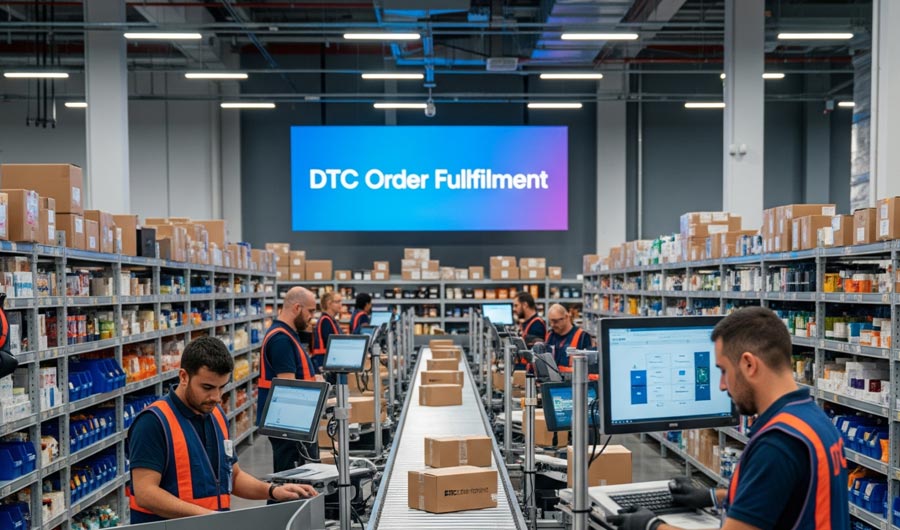
6 Tips and Tricks to Creating Content for Local SEO
Having a solid local search engine optimization (SEO) is a significant part of the marketing strategy. More and more customers turn to the internet to find products and services within their local area. This is where you can boost your content to be more visible to users and lead traffic to your website.
Like other local businesses, your local SEO efforts should be comprehensive. Get an in-depth look at how your local SEO strategy for content should go.
Key Takeaways:
- Local SEO focuses on SEO in a certain area only, catering to the locals’ needs through content.
- Any content you come up with can be used for local SEO.
- Optimizing your website after creating content can help make your local SEO a success.
INDEX
Understand the Local Audience
Use Local Keywords
Create Locally Relevant Content
Optimize for Local SEO
Engage with the Local Community
Monitor and Adapt
Final Thoughts
Understand the Local Audience
These are the ways you can gain insights about your audience:
- Market Research: Post and announce surveys to get information from your local customers about their needs, preferences, and how they learned about your business.
- Local Search Behavior Analysis: Track where the traffic comes from and the keywords people use with Google Analytics. This data may help you come up with ideas about content creation.
- Competitor Analysis: See what your competitors are doing. Review their websites, content, and customer reviews to learn more about their techniques. Visit their social media profiles and see how they interact with their audience.
- Monitor Trends: Be updated with the latest trends in your locality. Hop on them if you can.
- Ask for Feedback: Encourage customers to leave feedback online or in-store through comment cards.
Use Local Keywords
Keywords are the foundation of SEO. You will still use keywords in local SEO, but the only difference is they’re geared towards places and localities.
Identify and use the right keywords to attract local customers and stay on top of local search. Start with the broad ones related to your business and slowly narrow them down to location-specific terms. For example, if you run a bookstore in Denver, use keywords like “Denver bookstore” and “best bookstores in Denver.”
Look for popular search terms through Ahrefs, Google Keyword Planner, or SEMrush. Add long-tail keywords or specific phrases that people use to find products and services from other local businesses. They’re less competitive compared to other keywords and attract highly targeted traffic.
Create Locally Relevant Content
The bulk of the local SEO work is on content creation. After gathering your keywords, it’s high time to write and create your own content to ensure your local search visibility. Here’s what you need to do:
Choose the Kind of Content to Write
You have so many to choose from when it comes to written content. Consider any of these for your local SEO content strategy:
- Localized Blog Posts: These blogs give relevant information about your niche in your locality.
- Local Events: These writings engage the community and enhance visibility for location-specific searches.
- Testimonials: This content is a powerful marketing tool to attract new customers and clients.
- Guides: This kind of content that caters to local interests is helpful for locals and visitors alike.
- FAQs: This page addresses the people’s most frequently asked questions about your business.
- Service Pages: Write a dedicated page for every location of your local business so people in those areas can easily see the products and services you provide.
- How-Tos: Provide information with all the keywords about anything and everything locals should know about.
- Infographics: They’re half-visual and half-written content. These photos contain information and images locals should know.
Write Interesting Topics
Make sure the topics you write will capture the attention and interest of the local community. It can be a local food festival or a how-to guide in preparing a certain local dish with a twist. As long as the topic relates to the locals, it can be possible for you to achieve favorable local SEO search results.
Draft Your Content
Research your topic before you begin writing. You need to have enough information to produce factual content. After researching, start structuring and writing your content. It’s a rough draft, so you can make your thoughts run for a while.
Write in simple words and avoid using jargon or deep words. Convey your thoughts and ideas clearly without confusing the readers. Follow your writing guidelines to properly structure your content before submitting it.
Add Your Keywords
Incorporate your local keywords seamlessly into the article. Give them a natural flow that doesn’t feel forced. Search engines will give your website penalties if you stuff the exact keywords in a sentence or paragraph.
Proofread Your Writing
Run your article under a grammar detection tool to start editing your writing. After implementing all the changes, edit your article using your own skills.
Read the article from beginning to end. Shorten sentences, remove an entire paragraph, or rewrite a few sections whenever possible.
Optimize for Local SEO
Maximize your local content to its fullest potential with these SEO tactics:
- Optimize Meta Tags and Descriptions: To appear in local search results, add the primary local keyword and location to your title tags, meta descriptions, and headers.
- Add Schema Markup: Better content understanding of search engines and rich snippets in local search results are possible through this code.
- Create Location Pages: Optimize every page with local keywords and provide content relevant to that location. Include your name, address, and phone number on all pages.
- Use Google My Business: This Google business profile boosts your local SEO strategies. Provide accurate and up-to-date business information, respond to reviews, and post photos often.
Engage with the Local Community
Build strong relationships with the people around your locality. Work with other businesses, attend community events, and collaborate with influencers to promote your business and hit the top spot of local searches. You can also earn local backlinks, which benefit your SEO efforts.
Monitor and Adapt
Local SEO doesn’t stop at one cycle. Monitor the performance of your local SEO effort to know which works and which doesn’t. Gauge how effective your content is by looking at your organic traffic and conversion rate.
Final Thoughts
Local SEO success is possible when implementing these strategies in content creation and beyond. Focus on the relevant local keywords, create engaging content, and use backlinks and reviews to your advantage to be on search engine results pages. Keep yourself updated to stay ahead of the competition and rankings.
Work with an expert SEO agency to answer the question, “What is Local SEO?” These companies will examine your website and suggest the next few steps, such as fixing technical errors or writing more content. They’re adept at using SEO tools to bring out your business’s potential with local SEO






